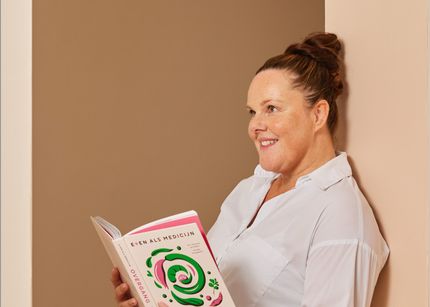Weight gain and menopause
Many menopausal women notice changes in their body shape and overall weight. Even if your eating habits and lifestyle remain the same, you can gain weight at midlife. Research has shown that approximately 60 to 70 percent of women gain weight during their menopausal years. Although this weight gain serves a purpose, it can have a negative impact on body image, making you feel inadequate or insecure. Especially if you're trying everything you can to lose weight but are failing miserably.

I keep putting on weight. My wardrobe is stuffed with clothes in different sizes. - Maria (age 54)

Many factors can affect your weight, including your metabolism. This is the reason why during perimenopause, which is marked by low progesterone and high oestrogen, many women start putting on weight. On average, women gain one to two pounds per year between the ages of 50 and 60. Of course, this could be slightly more or less for each individual. The closer to menopause, the more your body changes.
What is happening in your body?
The female body goes through major changes as it transitions to menopause and beyond. The ovaries gradually start producing less of the female sex hormones oestrogen and progesterone. However, in the years leading up to the menopause, progesterone levels drop faster than oestrogen levels, causing an oestrogen dominance effect. The higher your oestrogen levels, the more fat is stored in your body.
Reduced levels of oestrogen can cause fat to be stored around your waist rather than on your hips and thighs. As a result, you may notice that your belly is getting bigger. This serves a purpose: belly fat plays an important role in reducing menopausal symptoms. This is because belly fat cells generate their own local production of oestrogen. So, your growing tummy is actually a sign that your body is taking care of you.
As oestrogen levels drop further in subsequent years, you lose muscle mass. This slows down your metabolism because your muscles don’t use as much energy as before. This means that if you don’t change your eating habits, you are likely to gain weight.
Most women have multiple menopausal symptoms. So, it’s not uncommon to struggle with weight gain as well as, for instance, sleep problems, joint pain and restlessness.
Insulin, leptin, and your weight
In many women, weight gain is not only related to menopausal hormone fluctuations. Often there are several imbalances at play, which may or may not be caused by the same hormones. For instance, hormonal fluctuations can cause the body to respond less well to insulin, the hormone that absorbs sugar from food and converts it into energy. This can cause you to gain weight suddenly or keep you from losing weight successfully.
Reduced oestrogen levels can also affect how leptin works in the body. Leptin is a hormone that sends a signal to your brain when you are satiated or hungry. It’s a natural appetite suppressant. So, less oestrogen means less leptin, which means you feel hungry more often. If you feel hungry more often, you’re more likely to eat bigger servings or reach for snacks (which can develop into a habit of late-night snacking or binging).
Other causes
Reduced levels of progesterone can also cause the thyroid to become underactive. One of the most important functions of the thyroid is regulating metabolism, the body’s internal combustion engine. If you already have an underactive thyroid, your symptoms can become more severe.
Fluctuating hormone levels have also been linked to mood and happiness. If you don’t feel good about yourself, you’re more likely to reach for snacks that give you a serotonin boost. Serotonin is the happiness hormone and improves mood. The same applies to poor sleep: if you wake up feeling exhausted, you’re much more likely to reach for carbs for a quick energy fix.
Last but not least, hormonal fluctuations can also make you more sensitive to stress. When you are under a lot of stress, your body enters fight-or-flight mode (causing it to produce more of the stress hormone cortisol which breaks down tissue), rather than resting and digesting (which promotes tissue buildup and the production of sex hormones). This can affect blood glucose levels, which in turn can lead to sugar cravings.
What can you do?
Even if your eating habits remain the same, you can gain weight at midlife. Understanding what is happening in your body, taking care of yourself and making some minor adjustments will put you in control of your weight (and alleviate discomfort and menopausal symptoms).
- Accept that ageing is a part of life. Your body and energy levels change. This is all part of ageing. Don't be too critical of yourself. Your body is working hard for you every day, so treat it with compassion.
- Stabilise your blood sugar. Eat less (fast) carbohydrates and sugars, and more protein, slow carbohydrates and healthy fats. Full-fat yoghurt is an excellent choice.
- Limit the number of meals per day to three or four. This will lower blood sugar and prevent blood sugar spikes.
- Stop eating two to three hours before bedtime. This will give your body enough time to digest your food.
- Do strength training twice a week. Strength training increases muscle mass. This improves, among other things, metabolism, making it easier to lose weight and keep it off.
- Incorporate moments for rest and relaxation into your daily routine. Take a walk, read a book, or do something else that helps you unwind. This will make you less stressed and tired, and help with sugar cravings.
Product comparison
Compare the mechanism of action, usage, and average weight loss across the weight loss products.
What treatment is right for you?
What are your options if you decide to go the medicinal route? The most commonly prescribed weight loss medications come in two forms, capsules (to be taken daily by mouth) and self-administered injections. Each medicine works in a slightly different way.
- They lower blood sugar levels, enhance insulin secretion in response to elevated blood glucose levels, and reduce excessive glucose production.
- They work on areas in the brain involved in the control of food intake and energy expenditure. Like Mysimba and Wegovy.
- They slow the movement of food from the stomach into the small intestine, which helps reduce appetite and makes it easier to stick to a diet.
- They reduce the absorption of fat, making you take in fewer calories. Like Xenical and Orlistat.
Medication for weight loss
Losing weight during the menopause is certainly achievable, provided you have the right support. If diet and lifestyle changes are not sufficient, medication can offer some assistance.

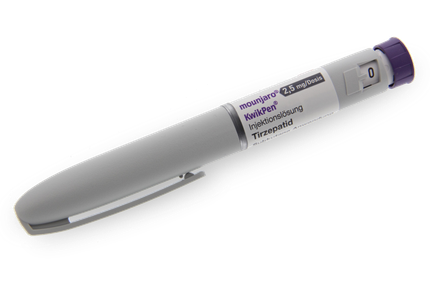
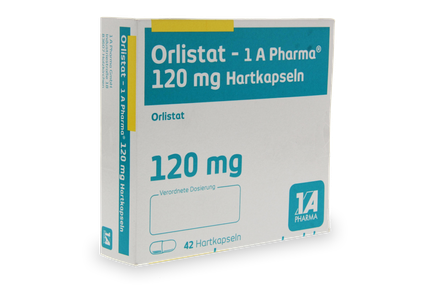
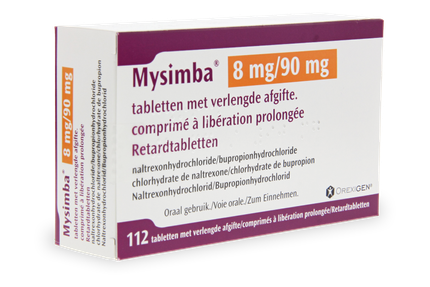
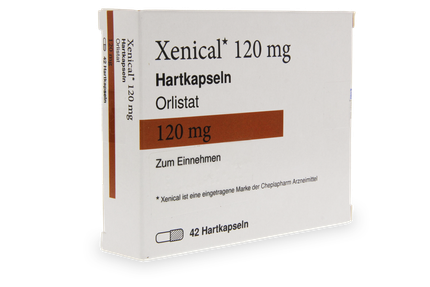
Can hormone therapy help?
Hormone therapy supplements the body with hormones that are lost during menopause to relieve moderate to severe menopausal symptoms. In fact, it’s the most effective treatment for hot flashes and night sweats. Hormone therapy can also help with other symptoms, such as sleep problems and vaginal dryness.

Less carbohydrates, more protein and more strength training – that's my recipe for success. I feel much better about myself and I've lost some weight, too. - Wilma (age 58)

Sources
10% discount?
Subscribe to our newsletter, get all the tools you need to make your menopausal journey more comfortable, and to top it off, you will also get a 10% discount on our premium-quality supplements or on a doctor’s consultation!
The discount is calculated on the cost of the doctor’s consultation included in the total price and only applies to orders over £40. This offer is not valid for consultations for painkillers and sleep medication.Tips and advice


FAQ
What role do hormones play in menopausal weight gain?
During the menopausal transition, your hormones, specifically oestrogen and progesterone, fluctuate rather unpredictably which, in turn, can influence your weight. In the years leading up to the menopause, your progesterone levels drop, causing an oestrogen dominance effect in the body. The higher your oestrogen levels, the more fat is stored in the body. After menopause, reduced levels of oestrogen can cause fat to be stored around your waist rather than on your hips and thighs. This is when many women notice that their tummy is getting bigger. Also, as you get older, you lose muscle mass, which slows your metabolism because you don’t need as much energy as before. So if your diet doesn't change, you are likely to gain weight. More about weight gain.
What supplements help reduce weight gain?
Some women use dietary supplements, such as supplements used in Ayurvedic medicine, or Schuessler tissue salts, Lady's Mantle or Monk's pepper, to control menopausal weight gain. While some of these dietary supplements can be a good way to supplement dietary deficiencies, it should be remembered that a balanced and healthy diet, as well as an exercise routine, should be the key focus. We will be happy to help you find the right supplements for your health needs and symptoms.
Can hormone therapy or hormone patches help?
If diet, lifestyle changes and dietary supplements are not enough to alleviate your menopausal symptoms, you may consider using hormone replacement therapy (HRT) or hormone patches. The type of medication that is right for you depends on your individual situation and overall health. SeeMe-nopause can help you choose the most suitable product based on your symptoms and preferences.











